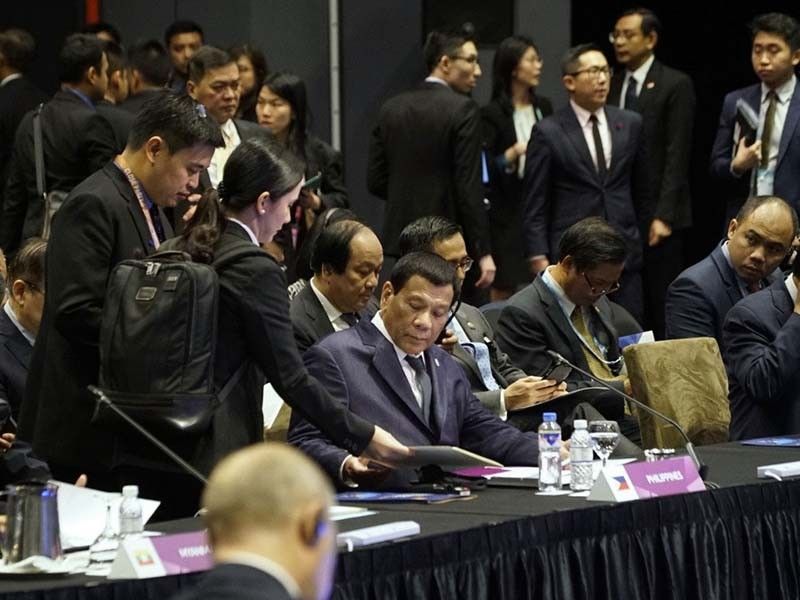Duterte signs Payment Systems Act into law

MANILA, Philippines — President Rodrigo Duterte has signed into law a measure that regulates payment systems in the country.
Republic Act No. 11127 or the National Payment Systems Act was signed into law last October 30.
A payment system is the set of payment instruments, processes, procedures and participants that ensures the circulation of money or movement of funds.
The National Payment Systems Act seeks to promote, through the Bangko Sentral ng Pilipinas a safe, efficient and reliable operation of payment systems to control systemic risks and ensure an environment conducive to sustainable growth.
There is a systemic risk if the failure of a participant in the payment system or financial markets to meet its obligations would cause other participants to be unable to meet theirs.
Under the law, the BSP shall oversee the payment systems in the Philippines and exercise supervisory and regulatory powers to ensure the stability and effectiveness of the monetary and financial system. The central bank was given the power to designate a payment system to prevent risks and to protect the public interest. It also has the power to require operators of the designated payment system to secure prior authority from monetary officials.
Operators were defined as any person who provides clearing or settlement services in a payment system or defines, prescribes, designs, controls or maintains the operational framework for the system.
The BSP may also accredit or require a payment systems management body organized by participants of the designated payment system for self-regulation.
The central bank may also issue rules on the standard operation of payment systems and the conduct of examination of the participants of payment systems, the adequacy of resources of payment system operators, qualifications of individuals elected or appointed as officers of operators of payment systems, measures to ensure the confidentiality of payment information, measures to ensure the compliance of payment systems with the Anti-Money Laundering Act and other related laws, mechanism for protection of the rights of end-users and participants of the payment systems, principles on setting prices, and guidelines applicable to payment system management bodies.
Monetary authorities may also issue directives to participants and require them to submit reports on their operations. The BSP may also collect an annual free from participants to cover costs related to its supervisory functions. The central bank shall also have the authority to own and operate present systems as may be deemed necessary by its monetary board. It shall adopt internal safeguards to ensure appropriate independent oversight of its operator functions.
All operators of payment systems are required to register with the BSP within six months from the effectivity of the law. Operators of the designated payment system except those operated by the BSP are required to incorporate as stock corporations and should meet the requirements set by the monetary board.
The acquisition of shares in an operator of a designated payment system that will result in ownership or control of more than ten percent of the voting stock of the operator has to secure prior approval of the monetary board. The BSP may also tap a manager to manage the operations of the operator of a payment system if necessary.
The monetary board was given the power to impose administrative sanctions on erring payment system participants. The monetary board will determine the fines to be imposed on violators but they should not exceed P1 million for each transactional violation or P100,000 a day for each continuing violation.
The board may also suspend, disqualify or remove any of the directors or officers of the operator of a payment system in any of the following instances: willful violation of the operator's charter, willful delay in the submission of required reports, refusal to allow examination into their operations, willful making of false or misleading statements, refusal to comply with the provisions of the law, and willful commission of irregularities.
The BSP may issue a cease and desist order if the erring participants continue to commit violations. The law also provided the grounds for the revocation of the certificate of authority of a payment system operator including the violation of rules involving fraud.
Persons or entities that willfully violate the law, rules or directives promulgated by the monetary board shall be punished by a fine ranging from P200,000 to P2 million or by imprisonment of two to ten years or both depending on the decision of the court.
- Latest
- Trending





























